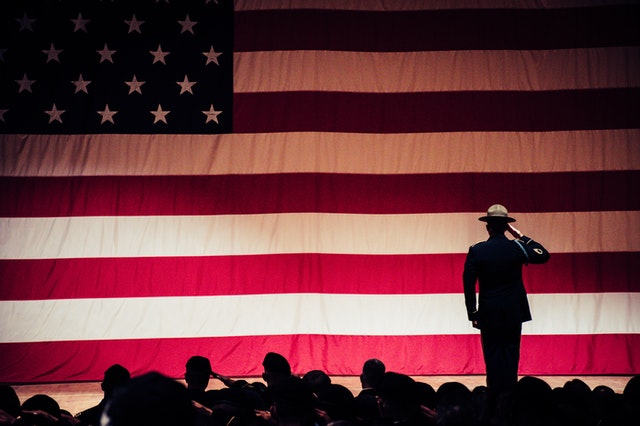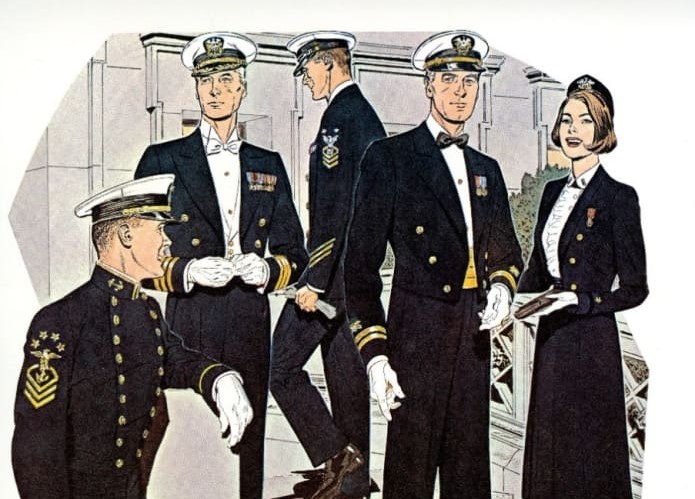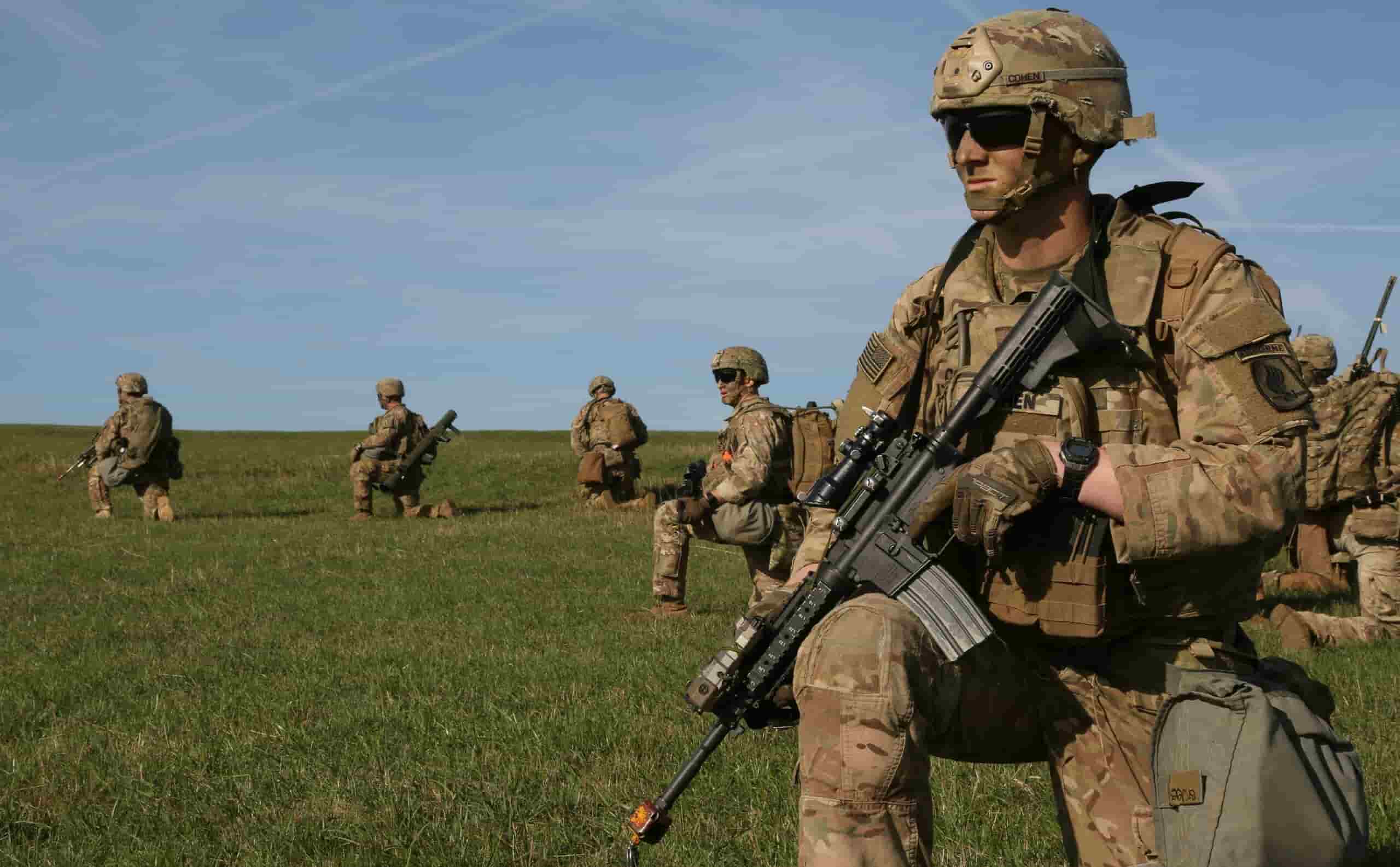Are you interested in joining the Marine Corps? So, What Do the Marines Do? The Marine Corps is one of the most well-known military branches in the United States. Marines are known as “devil dogs” due to their tenacity, loyalty, and discipline. Before you can join the Marines, you must first meet a stringent set of requirements. What are the qualifications for joining the Marine Corps?
This article will teach you everything you need to know about joining the Marine Corps!
What Do the Marines Do?
The United States Marine Corps (USMC), also called the U.S. Marines, is one of the most well-known fighting forces in the world. The Marines are a part of the Department of the Navy and operate at sea. The Marines’ duty is unique among the services. Marines will serve on U.S. Navy ships, protect naval bases, guard U.S. embassies, and are responsible for providing an ever-ready quick strike force to protect U.S. interests anywhere around the world.
To complete the many missions of the Marine Corps, approximately 182,000 officers and enlisted Marines fly planes and helicopters; operate radar equipment; drive armored vehicles; gather intelligence; survey and map territory; maintain and repair radios, computers, jeeps, trucks, tanks, and aircraft; and perform hundreds of other challenging jobs.
Marines Corps Benefits
When joining the Marines, a Marine takes pride and determination, and many benefits come with the job.
Salaries and Promotion
Competitive income: Generally, you are paid twice a month, at the beginning and the middle of the month, based on your pay grade and service requirements. Those who join the military with education or special skills can begin their jobs with a higher pay grade, some even may be eligible to serve in The Marines as an officer.
Promotion: You would be advanced based on job knowledge, your performance, time in pay grade, and service requirements.
Health Benefits
Mentioning health care, while on active duty, you will receive complete medical and dental care at no cost. There’s also medical care for your families
Life Insurance and Allowances
Active duty members select up to $400,000 in term life insurance for a low price.
You’ll also receive additional tax-free money for the basic housing allowance (BAH); the basic allowance for subsistence (BAS); and a uniform allowance (for enlisted personnel only) to help maintain your uniform.
Tax advantage: Only your basic monthly pay is subject to federal or state income tax.
Education Benefits
GI Bill: The GI Bill will help pay for college education or vocational training.
Tuition assistance: While on active duty, you can continue your education and get help in defraying the cost of college-accredited courses.
Additional Benefits
When joining the Marines, there are exchange and commissary privileges, moving allowances, temporary lodging expenses, travel, survivor benefits, Veterans Administration home loans, and more.
- Vacation: You are allowed to have 2.5 days of paid vacation per month for a total of 30 days, it’s up to 60 days each year.
- Training: You choose your career path based on your aptitude, physical abilities, security clearance, motivation, and determination.
Read more >> Free ASVAB study guide
Requirements for Joining the Marines
The basic requirements for enrolling are as follows:
- Age Requirement: Be between the ages of 17-28. Besides, 17-year-old candidates need parental consent.
- To enlist, you must be a legal resident or a citizen of the U.S. Marines officers must be a U.S. citizen
- Meet all the physical, mental, and moral requirements.
- Educational Requirements: Hold a high school diploma or a GED certificate.
- Take and pass the ASVAB test. The Marine Corps requires a minimum of 32 points on the AFQT. The Marine Corps limits GED enlistments to a maximum of 5 percent per year. It is at least 50 ASVAB Scores required for individuals holding a high school equivalency degree (GED, TASC, HiSET).
- Pass a Military Entrance Processing Station medical exam.
How to Join the Marine Corps
Joining the Marines is a long and difficult process, but the training prepares you for the even bigger challenges of service. The following are the steps to joining the Marines:
Go to MEPS testing
The Military Entrance Processing Station (MEPS) is the initial stop on the path to becoming a Marine in the United States. MEPS’ testing process lasts 2 days, during which you will be provided with housing and meals. You will take your ASVAB test at MEPS if you have not already done so at your school, as well as pass a physical. You must also be a US citizen or a resident alien, get a high school diploma, and be between the ages of 17 and 29 to join the Marine Corps. You must also have a minimum ASVAB score of 32.
Select a suitable job
If you successfully pass your physical and ASVAB at MEPS, you will meet with a counselor to determine your Marine Corps career path. Your test results influence which jobs you are qualified for. The Marine Corps has over 30 Military Occupation Specialties (MOSs), each with many jobs within it.
Attend boot camp
Marines attend boot camp in either Parris Island, South Carolina, or San Diego, California. This is a 13-week training course that challenges recruits physically and mentally. Boot camp is divided into three stages.
Finish Recruit Receiving
You go through Recruit Receiving when you arrive at boot camp. You get a haircut here, as well as your uniform, equipment, and other supplies, as well as medical and dental screening. You will also be subjected to the Initial Strength Test, which consists of pull-ups, sit-ups, and a half-mile run.
Finish Phase One of Boot Camp
Recruits are taught the history of the Marine Corps, first aid skills, martial arts, and weapon handling during the first phase of boot camp. Recruits are also taught about the fundamental Marine values of honor, courage, and commitment. They also go through the Confidence Course, which has 11 obstacles. The first phase takes 4 weeks to complete.
Complete Boot Camp Phase Two
Phase Two of boot camp lasts from weeks 5 to 9. During this time, recruits learn close combat techniques, as well as marksmanship and gas chamber training. The Crucible event is also included in this phase. The Crucible is a 54-hour marching challenge that requires teams to finish combat assault courses, team-building warrior stations, a leadership reaction lesson, and over 45 miles of marching.
Complete Phase Three of Boot Camp
Phase Three lasts from weeks 10 to 13 of boot camp. During this phase, recruits mainly take qualifying tests such as a defensive driving course, a swim test, and a history exam. Physical training, inspections, and drills are still going on.
Marine Graduation
Marine graduation takes place over two days, with Family Day on Thursday and graduation on Friday. Families are encouraged to attend and show their support for their Marines. After graduation, you will be a Marine.
What is the ASVAB Test?
Marines who want to enlist in the Marines need to complete several steps before they can be enrolled into the Marines. The first step is to take an ASVAB test, which tests your aptitude for military service and helps determine what jobs you may qualify for.
As mentioned, the ASVAB is a test that measures your aptitude. It includes 9 short subtests, which cover Arithmetic Reasoning, Assembling Objects, Auto and Shop Information, Electronics Information, General Science, Mathematics Knowledge, Mechanical Comprehension, Paragraph Comprehension, Word knowledge, numerical operations, and coding speed.
Officer applicants who did not receive a minimum score on the SAT or the ACT must take the ASVAB and score a minimum of 115 on the Electronics Repair composite.
To increase the opportunities to make a Marine’s dream come true, you should get perfect preparation. We can help you with one of the best practice tests. Let’s check out our full Marines ASVAB practice test 2024.
What’s the difference between the Marines and the Army?

Although the initial goal of both The Marines and The Army is to protect the country and U.S. citizens, there are unique elements of each branch making the difference.
The Army is a much larger force, about more than two times the size of the Marines, and is used in larger and longer conflicts. At times, the Army will relieve the Marines after a period of time.
The Army is typically land-based, so they will use trucks, tanks, and all-terrain vehicles for transportation. In contrast, the Marines frequently manage Navy-related campaigns, so they use ships, submarines, and amphibious vehicles in addition to Humvees or tanks.
Besides, the Marine’s mission is more specified. The Marine Corps is considered the nation’s 911 force. They have since evolved to become the United States’ initial response team. In other words, whether you are in the infantry, the air wing, or a computer technician, you will be given the proper training, if needed, so that you can perform as an infantryman. It is fair to say this mentality does not exist in all of the Army’s support units.
Read more >> Marine Corps Height and Weight Standards
What Is Marine Boot Camp?
Recruit training is a rigorous, demanding, and challenging experience. The general purpose of recruit training is to improve the military skills, knowledge, discipline, pride, and self-confidence necessary for recruits to be Marines.
Marine boot camp is known as more challenging, both physically and mentally, than the basic training programs of the other military services. There are more than 70 training days in a period a little longer than 12 weeks. It has been said by former Marines that Marine Corps recruit training was the most challenging thing they ever had to do in their entire lives.
In the first several days at the recruit depot, the recruits are assigned to a platoon, receive a basic issue of uniforms and equipment, then are given an additional physical and take further assignment classification tests. A team of three Marine drill instructors would be the leaders of each platoon. A regular training day for a recruit begins at 5 a.m., includes drill, physical training, and several classes in weapons and conduct, and ends at 9 p.m. with taps.
How Long Does Boot Camp Last?
Boot camp lasts 13 weeks, followed by 3 weeks of the School of the Infantry or Marine Combat Training.
Where Is Boot Camp Located?
Boot camp is located at Parris Island Recruit Depot, South Carolina on the east coast, and San Diego Recruit Depot, California for those on the west coast. Parris Island is for women to participate in recruit training.
What Should I Prepare for the Marine Boot Camp?
There are a lot of things to prepare before such a challenging journey. The more you prepare in advance, the better you will be.
It’s important to try to get into physical shape. Focus on running three miles and long marches (up to 10 miles). Sit-ups and pull-ups are also essential. If you cannot do basic exercises, it would take you a significant amount of time to adapt to the physical conditioning platoon.
Besides, pay particular attention to the list of items you are not allowed to bring to the boot camp.
We cannot say how important it is for you to prepare yourself for running and physical fitness training. It is recommended that you enroll in recruit training with the ability to run three miles in less than 24 minutes.
What Training Will I Receive?
Depending on the program, you will participate in boot camp and training for your military occupational specialty (MOS). Weekend or weekday drills are training. Active duty for training (ADT) is 12 days of active duty required annually.
What Is Officer Candidate School (OCS)?
OCS stands for Officer Candidate School, which is for college graduates or those in the process of receiving their degree and want to become Marine commissioned officers.
There are two programs for applicants – the Platoon Leaders Course (PLC) and the Officer Candidates Class (OCC). Both training programs are located at Quantico, Virginia.
- PLC – For freshmen, sophomores, or juniors in college. Applicants will finish either two six-week courses or the 10-week course before receiving their degree.
- OCC – Seniors or those who already have received their degree will participate in a 10-week course.
Both programs are organized in the summer and do not interfere with your academic studies.
The purpose of either 10 or 12 weeks of officer training is to measure your leadership potential; so take the chance and prove yourself. Once you graduate, you can determine whether to accept an appointment as a Marine Corps officer.
How Do I register for OCS?
We highly recommend you contact an officer selection Officer (OSO). The application process consists of receiving a minimum combined score of 1000 on the SAT, a 45 on the ACT, or a 115 on the Electronics Repair composite of the ASVAB. You also must pass your physical exam at MEPS and write an essay as well as statements of your references.
How do I join ROTC?
You can receive a commission in the Marine Corps by joining Naval ROTC. The Naval Reserve Officers’ Training Corps (NROTC) program offers tuition and other financial benefits at more than 60 of the country’s leading colleges and universities. Two- and four-year subsidized scholarships are offered. Applicants receive a monthly cash allowance. Two- and four-year non-subsidized NROTC programs are also offered. These are considered college programs and provide monthly cash allowances between the junior and senior years.
Marines Corps FAQs
Is Infantry the Only Job in the Marine Corps?
While it’s said about the Marines that “every Marine is a rifleman,” infantry units make up no more than 15% of the service’s total force. You can have a chance to work in one of 35 career fields that offer more than 300 different jobs.
There are some special fields available to you as examples: Aircraft defense, Aircraft maintenance, Broadcasting, Combat Engineering, Communications, Computer operator/technician, Electronics, Supply,…
Can a Marine be a Navy SEAL?
Unfortunately, the answer is No. An active-duty Marine is unable to become a Navy SEAL. To undergo Navy SEAL training, you must be a member of the Navy first.
Does the Marine Corps accept Prior Service?
The answer is Yes. The Marine Corps does accept prior-service people but not in large numbers.
How long does it take to enlist in the Marines?
It’s a process to get accepted from 1-2 weeks depending on the health and physical condition as well as background of criminal history and restraints. Training schools can be 4 – 8 weeks.
How high of a GPA do you need to join the Marines?
2.5
The minimum required high school GPA is 2.5. Besides, you must score no lower than 920 on your SAT and 19 or more on your ACT.
What is the hardest part of a Marine boot camp?
Phase Three of Marine Corps Boot Camp
Weeks 8-10 will be the hardest period of training as recruits. You will have to give everything you have and even more to keep pushing forward. Just try your best! At the end of this phase, recruits will go through the final event of training – The Crucible.
What happens after the Marine Corps recruit training?
After finishing the recruit training, Marines attend the School of Infantry (SOI). Some with their MOS (Military Occupational Specialty) are trained at the Infantry Training Battalion (ITB) during the 52-day course, while others are trained at the Marine Combat Training Battalion (MCT) for 29 days.
After completing the combat training, Marines go to school to gain knowledge about how to do their specific jobs. And then they would receive orders for duties.
What if I Want to Go to a Service Academy?
Some Naval Academy graduates go into the Marine Corps. While at Annapolis, midshipmen have the opportunity to see firsthand the various fields open to them.
How Do I Apply to the Naval Academy?
After participating in a summer seminar or stem program, in order to apply, you should have a competitive SAT (Scholastic Aptitude Test)/ACT (American College Testing) score and cannot reach your 22nd birthday.
You also should attend athletics and community service, and demonstrate leadership qualities.
Are There Promotions to Officer Rank?
The answer is Yes. Marine officer ranks consist of commissioned officers and general officers. The promotion of officers is confirmed by the U.S. Senate.
What Reserve Opportunities Are in the Marine Corps?
Yes, of course. The Marine Corps Reserve is a part-time force of professionally trained individuals who serve with the Marine Corps for one weekend per month and two weeks every year.
You’ll have to complete a 12-week boot camp as well, but you’ll have the option of training for one of more than 300 different jobs.
What Are the Requirements to Join the Reserve?
As previously stated, the requirements for joining the Reserve are comparable to those for active duty.
You’ve memorized a lot of information; don’t forget to take the ASVAB practice test to ensure you’re fully prepared for your upcoming adventure!

ASVAB General Science Study Guide In 2024
April 25, 2023

A Complete Pictorial History Of US Navy Uniforms From 1776 To 1967
Follow this article to find out the pictorial history of US Navy uniforms from 1776 to 1976 and beneficial information about US Navy uniforms as well!
March 9, 2022

Can An Immigrant Join The Army In The United States? [2024 Updated]
Can an immigrant join the Army? You do not have to be a U.S. citizen to enlist in the Army but you need to meet some requirements. Read this post to know more.
March 5, 2022



